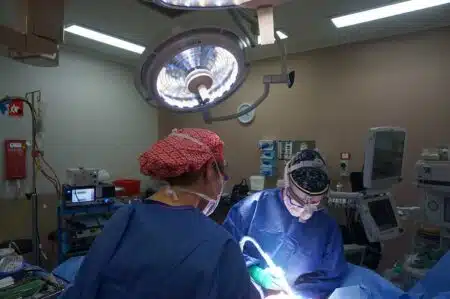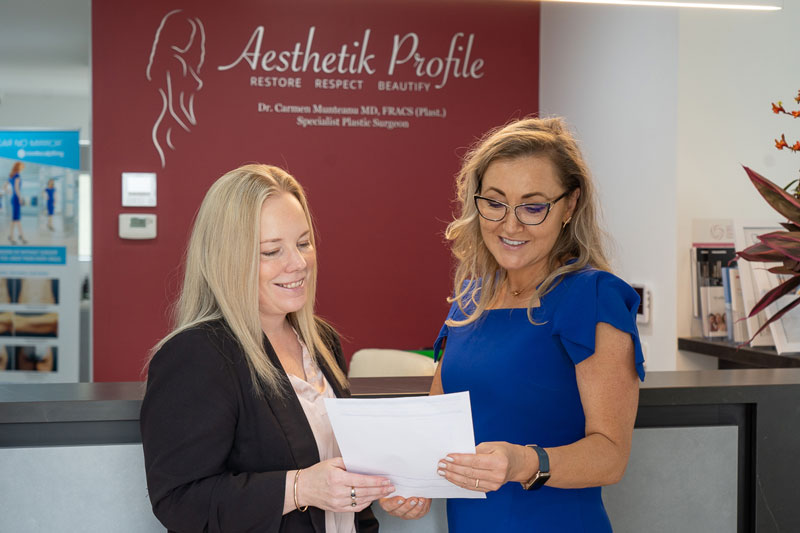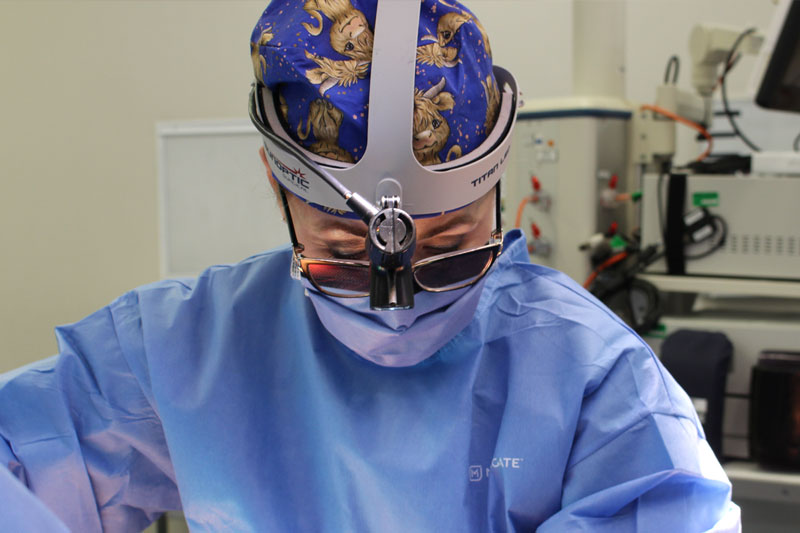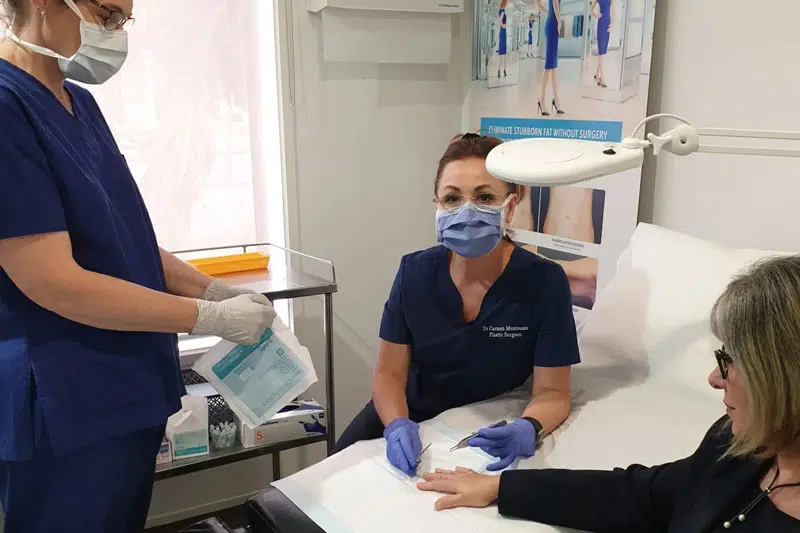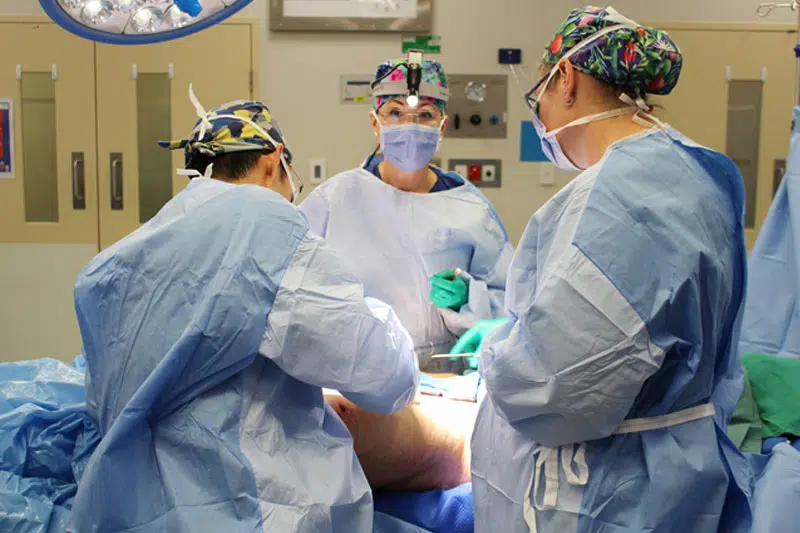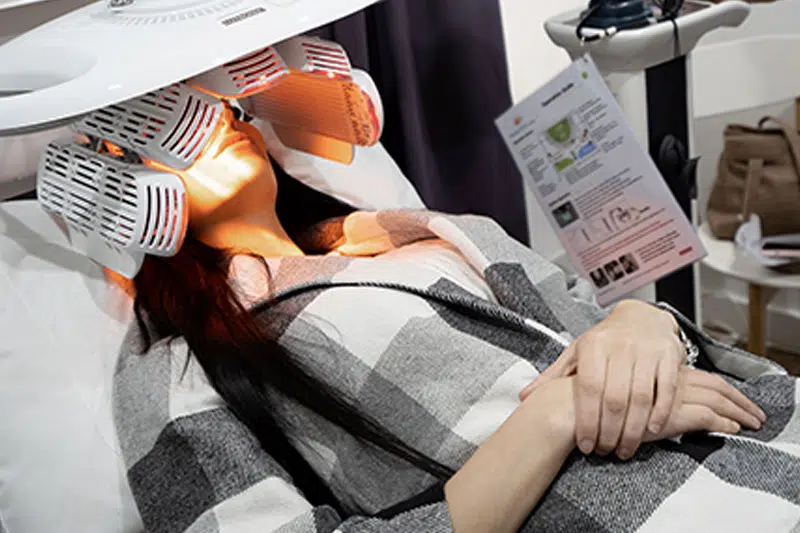Negative Effects of Vaping before and after Plastic Surgery
In recent years, vaping has gained popularity as an alternative to traditional cigarette smoking. While many people consider it a safer option, its impact on general health and the success of medical procedures, such as plastic surgery, remains a topic of concern. In this blog, we will discuss vaping and its potential effects on plastic surgery success. By understanding the risks and making informed decisions, you can achieve an optimal outcome for your cosmetic procedure.
Melbourne Specialist Plastic Surgeon Dr Carmen Munteanu is a talented and experienced plastic surgeon helping patients achieve their desired results after getting plastic surgery.
Take our Plastic Surgery Quiz to find out if you’d be a good candidate and if you are ready for cosmetic surgery.
What Is Vaping?
Vaping refers to the use of electronic cigarettes, or e-cigarettes, which are devices that heat a liquid solution containing nicotine, flavourings, and other chemicals. This process creates a vapour that is inhaled by the user. The act of using an e-cigarette is commonly known as vaping. E-cigarettes have become increasingly popular due to their perceived reduced health risks compared to traditional cigarettes. However, there is still much debate surrounding the long-term effects of vaping on overall health.
Smoking and Plastic Surgery Success
It is well-established that smoking before surgery can have a detrimental impact on the success of various surgical procedures, including plastic surgery. Studies have shown that smoking can lead to poor wound healing, increased risk of infection, and other complications that may affect the final outcome of a surgical intervention. As a result, many plastic surgeons require their patients to quit smoking for a certain period before and after surgery to minimise these risks.
How Vaping Affects the Results of Plastic Surgery
Given the known risks of smoking before surgery, it is essential to understand how vaping affects the results of plastic surgery. Although e-cigarettes contain fewer harmful chemicals than traditional cigarettes, they still deliver nicotine to the user. Nicotine has been shown to constrict blood vessels, which can reduce blood flow to the surgical site and impair wound healing.
Moreover, some studies suggest that vaping may have similar effects on wound healing and surgical success as traditional cigarette smoking. This indicates that vaping and plastic surgery may not be a safe combination, and people considering cosmetic procedures should be aware of the potential risks associated with e-cigarette use.
Risks of Vaping and Plastic Surgery
There are several potential complications associated with vaping and plastic surgery, many of which are similar to those that occur with traditional cigarette smoking. Some of the most common risks include:
- Poor wound healing: As mentioned earlier, nicotine in e-cigarettes can constrict blood vessels and reduce blood flow to the surgical site, which can impair the healing process
- Increased risk of infection: Reduced blood flow can also increase the risk of infection at the surgical site, leading to further complications and potential delays in the healing process
- Necrosis: In severe cases, impaired blood flow to the surgical site can cause tissue death, or necrosis, which may require additional surgical intervention to correct
- Scarring: Poor wound healing and increased risk of infection can lead to more pronounced scarring, which can be a significant concern for patients undergoing cosmetic procedures
These potential complications underline the importance of discussing your vaping habits with your plastic surgeon and following their recommendations to minimise risks.
The Impact of Nicotine on Wound Healing and Recovery
In addition to the risks of vaping and plastic surgery, it is crucial to understand the impact of nicotine on wound healing and recovery. Nicotine has several effects on the body that can hinder the healing process, including:
- Vasoconstriction: Nicotine causes blood vessels to constrict, reducing blood flow to the surgical site and depriving tissues of the oxygen and nutrients they need to heal properly
- Decreased immune function: Studies have shown that nicotine can suppress the immune system, making it more difficult for the body to fight off infections and heal wounds
- Increased inflammation: Nicotine has been shown to increase inflammation in the body, which can further impair the healing process
Alternatives to Vaping for Patients Undergoing Plastic Surgery
For patients who are unable or unwilling to quit vaping before undergoing plastic surgery, there are several alternatives to consider:
1. Nicotine replacement therapy (NRT): NRT products, such as nicotine gum and patches can help reduce nicotine cravings and withdrawal symptoms without the harmful chemicals found in e-cigarettes and traditional cigarettes. However, it is essential to discuss the use of NRT with your plastic surgeon, as some products may still have negative effects on wound healing and surgical outcomes
2. Non-nicotine e-cigarettes: Some e-cigarette products do not contain nicotine and may be a safer option for patients looking to reduce their nicotine intake before surgery. It is essential to note that the long-term safety of these products is still unknown, and further research is needed
3. Behavioural strategies: Techniques such as meditation, deep breathing exercises, and support groups can help individuals manage cravings and withdrawal symptoms without the use of nicotine
It is crucial to consult with Dr Carmen to determine the best approach for your individual needs and circumstances.
Preparing for Plastic Surgery
To maximise the chances of a successful plastic surgery outcome, it is essential to follow Dr Carmen’s recommendations and take steps to prepare for your procedure. Some tips for ensuring a successful outcome include:
- Quit smoking and vaping: As discussed throughout this blog, quitting smoking and vaping before surgery is crucial for minimising risks and ensuring the best possible results
- Maintain a healthy lifestyle: Eating a balanced diet, getting regular exercise, and staying hydrated can help improve your overall health and well-being, which can positively impact your surgical outcome
- Follow your surgeon’s instructions: Your plastic surgeon will provide you with detailed pre- and post-operative instructions. Following these guidelines can help reduce the risk of complications and optimise your results
Surgeon Recommendations Regarding Vaping and Plastic Surgery
The effects of vaping on plastic surgery success remain a topic of ongoing research and debate. However, the available evidence suggests that vaping, like traditional cigarette smoking, can negatively impact wound healing and surgical outcomes. As such, it is essential for patients considering plastic surgery to be aware of the potential risks associated with vaping and make informed decisions about their nicotine use.
When it comes to vaping and plastic surgery, the general consensus among plastic surgeons is that patients should quit vaping before undergoing a cosmetic procedure. The exact timeline for quitting may vary depending on the surgeon and the specific procedure, but most recommend abstaining from vaping for at least two to four weeks before and after surgery. It is essential to discuss your vaping habits with Dr Carmen and follow her recommendations to minimise risks and ensure an optimal outcome.
Download Dr Carmen’s Guide to Cosmetic Surgery Recovery
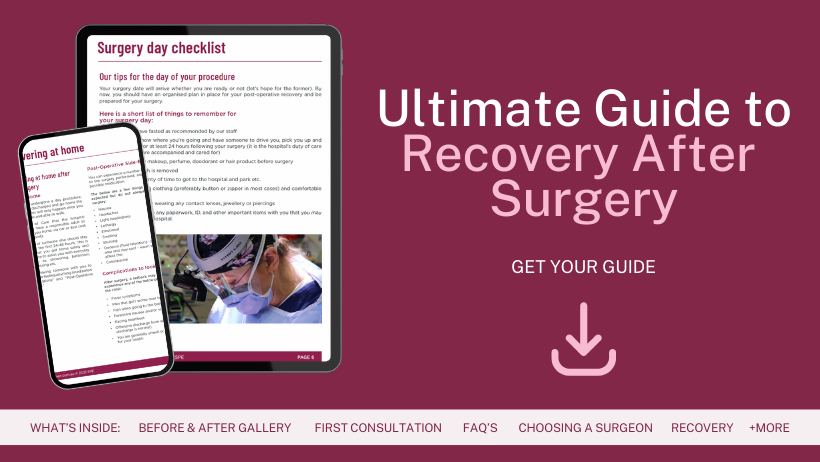
FAQs about Vaping and Plastic Surgery

How long should I stop vaping before surgery?
- The optimal time to stop vaping before surgery varies, but most surgeons recommend discontinuing all forms of nicotine intake, including vaping, at least 2 to 4 weeks prior to surgery. This is because nicotine can negatively impact healing, increase the chance of complications, and prolong the recovery process.
What happens if you have nicotine in your system before surgery?
- If you have nicotine in your system before surgery, it can constrict your blood vessels, reducing the blood flow to various parts of the body. This can lead to a slower healing process and increase the risk of complications such as infection and necrosis (death of body tissue). Furthermore, nicotine can impact lung function, potentially complicating anaesthesia and post-surgery recovery.
How long does nicotine stay in your blood for surgery?
- Nicotine itself usually clears from your body within a few days; however, cotinine, a metabolite of nicotine and a more commonly tested marker, can be detected in your blood for up to 1-2 weeks. This period can vary based on several factors including the frequency and duration of your smoking habit, your metabolism, and overall health.
What’s the best way to quit vaping?
- The best way to quit vaping is a multifaceted approach that includes behavioural support, nicotine replacement therapy or other medications, and a strong personal commitment to stop. Many people find support groups, counselling, or apps designed to assist with quitting smoking helpful. Consult with a healthcare provider for a personalised plan that suits your individual needs and circumstances.
Do they test for nicotine before plastic surgery?
- The decision to test for nicotine before plastic surgery is dependent on the policies of the individual healthcare provider or hospital. Some surgeons may require it because of the known risks that nicotine presents to the healing process, especially in procedures that involve significant tissue rearrangement, such as facelifts, tummy tucks-abdominoplasties, and breast reductions. You should discuss this with your surgeon during your pre-operative consultation.
When can I vape after plastic surgery?
- It’s generally recommended to avoid vaping and other forms of nicotine use for at least 2-4 weeks after plastic surgery, similar to the pre-operative period. The exact duration can depend on your specific procedure and personal healing process. Dr Carmen will be able to provide the best advice tailored to your situation. Remember that not vaping at all is the best choice for your overall health.
Further Reading about Plastic Surgery with Dr Carmen
- Read Dr Carmen’s Preparing for Surgery Page
- Read Dr Carmen’s Risks and Complications of Surgery Page
- See Dr Carmen’s Before and After Photo Gallery
- Read Dr Carmen’s Recovery after Surgery Page
- Read Dr Carmen’s Exercising after Surgery Page

